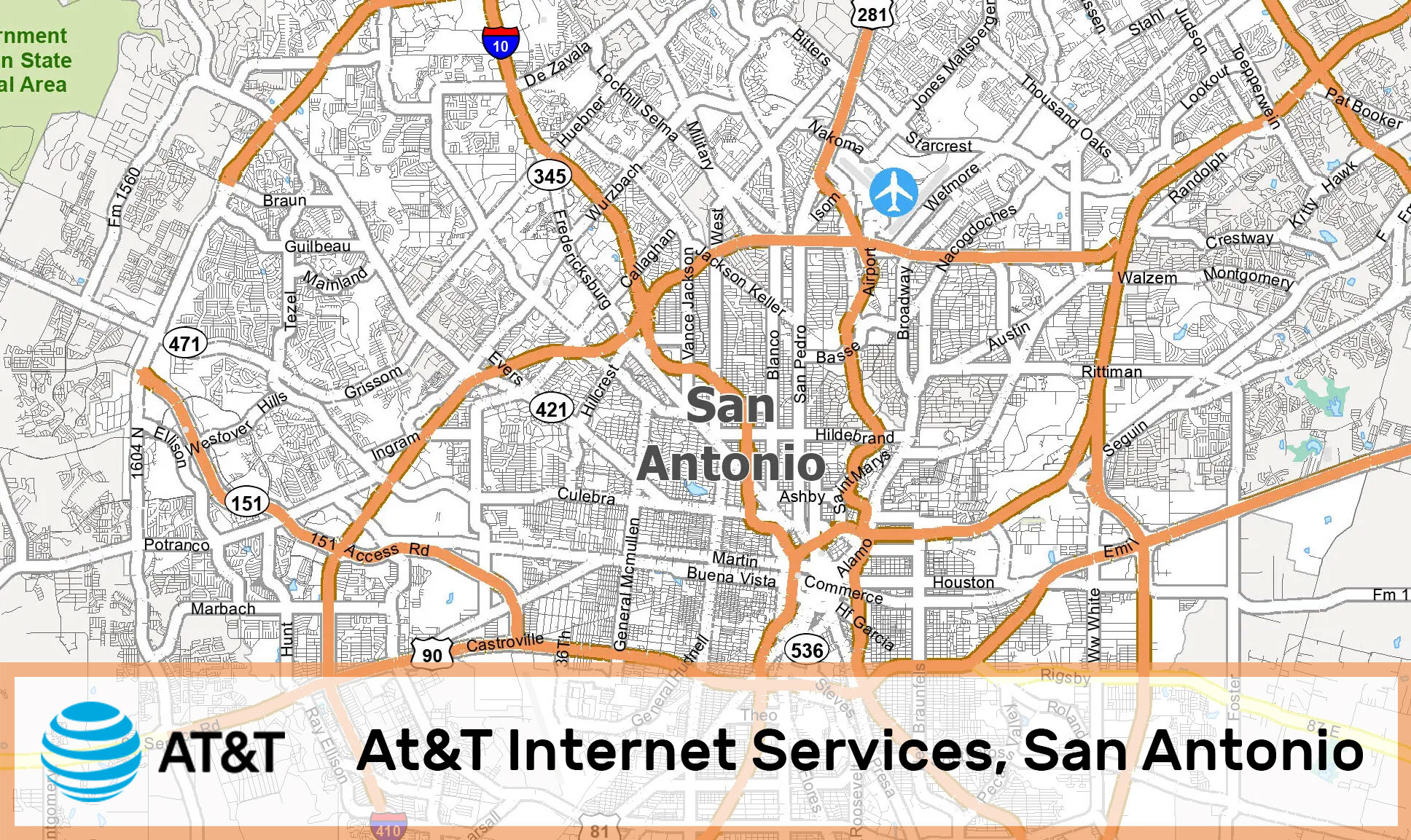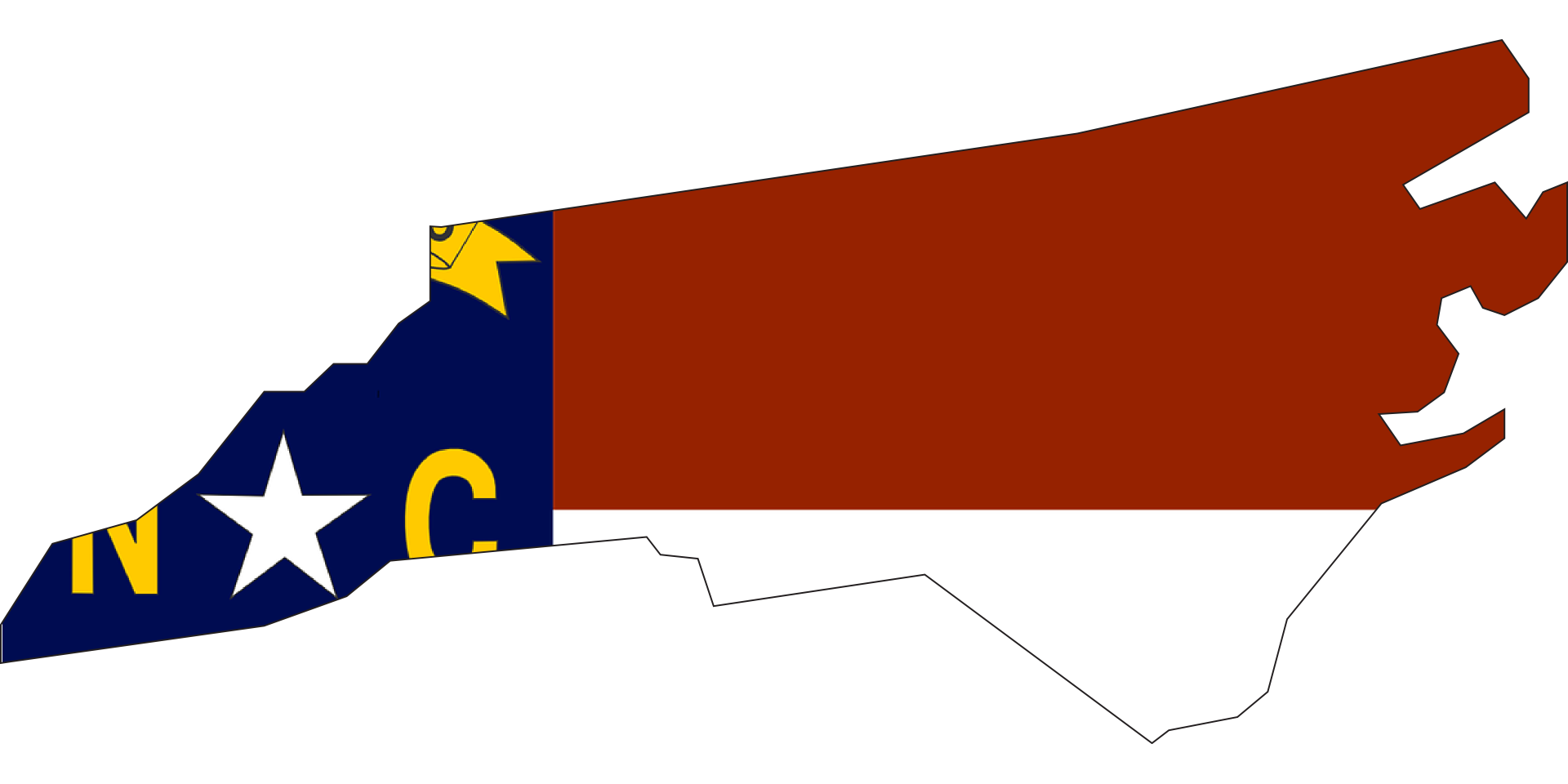What are you waiting for? Check the available AT & T Internet Providers in your area through KonnectEaze and enjoy the most reliable internet services.
22 October, 2024 | Posted by: Pablo Mendoza
Category: Deals & Packages, Internet, Service Providers, Streaming, Technology | No Comments

Since its establishment in 1983, AT&T has evolved into one of the premier Internet Service Providers in the United States, offering secure, high-speed internet services across 21 states.
AT&T provides advanced internet solutions with extensive reach in urban and rural areas, including a significant presence in San Antonio through Fiber Optic, DSL, and Fixed Wireless plans.
AT&T's network is designed to be robust and reliable, maintaining high customer satisfaction ratings, especially among fiber optic service users.
AT&T continues to lead in the ISP industry, offering reliable, high-speed internet with a focus on customer satisfaction. Check the availability of AT&T Internet Providers in your area through KonnectEaze.
Finding the fastest Internet service in San Antonio- Austin area can be quite a challenge. You wade through dozens of websites that promise the world only to discover the internet service you want isn't available, is too expensive or just not fast enough. If only there was an easier option.
15 May, 2024 | Posted by: Pablo Mendoza
Category: Deals & Packages, Internet, Service Providers, Streaming, Technology | No Comments

Did you know that 86% of urban areas in the US have access to broadband compared to 81% in rural areas?
The country ranks 11th in the world for broadband speeds yet many users get left behind. That's in part to fiber broadband installations which usually happen within the cities. But what about areas that can't get access to high-speeds?
This article reveals how you can get the fastest Internet possible no matter what city, state, or community you're in.
Read on to discover the benefits of Rise Broadband Internet. Discover how affordable Rise Broadband prices can be. And connect to the Internet speeds you deserve.
Gone are the days of dial-up modems and files taking hours to download.
Modern broadband Internet offers a high-speed connection to the online world. Speeds are measured in Mbps or megabits per second. The higher the number the faster your Internet experience.
Although there's no standard definition of a base broadband speed, aim to reach double-digits. For example, you can download a 10MB file on a 20Mbp connection in under ten seconds.
You'll need an Internet service provider or ISP to get connected. However, they all charge different prices for different speeds. And not all ISPs will cover your location.
One of the best broadband providers is Rise Broadband.
Located in Dallas, Texas, Rise Broadband provides fixed wireless Internet services. Whether you live in a rural or urban setting you can connect from any device.
Rise will install an antenna on your roof and attach a radio receiver. Their hardware connects to a local Access Point tower which in turn links to a fiber junction box. This produces low latency/delays compared to options like satellite.
Rise Internet speeds range from 1Mpbs up to 1Gbps.
They serve a sixteen states that include twenty-six million American homes and businesses. If you can access a minimum of 5Mpbs you can use Rise Broaband's fastest Internet service for HD video streaming.
Rise Broadband has the fastest Internet deal to suit every budget. Three popular high-speed options include:
The Unlimited deal costs $54.95 per month and includes an unlimited amount of downloads. Speeds average 25Mbps and there are no set-up fees.
The 50 Internet Only option grants you speeds of up to 50Mbps for $44.95p/m. That price includes 250GB of data usage and the modem costs $10.99 p/m.
Finding the fastest Internet service is never fun. You wade through dozens of websites that promise the world only to discover they don't cover your area. If only there was an easier option.
KonectEaze lets you find the perfect ISP by simply entering your location.
Our results display download and upload speeds along with pricing and contract lengths. We even show how long it would take to download a movie and 50 photos.
Try our service today and contact Rise Broadband for the best deal.
Internet access in the US varies from state to state and provider to provider. Here are stats to some of the most popular internet providers around today.
15 November, 2024 | Posted by:
Category: Deals & Packages, Reviews, Internet, Service Providers, Streaming, Technology, Tips | No Comments

AT&T, synonymous with innovation in communications, has been a leader in technological advancements for over a century. This article delves into AT&T's transformative journey, emphasizing its milestones and impact on telecommunications, illustrated through an infographic.
Founded in 1885 as a subsidiary of Alexander Graham Bell's company, AT&T was established to build the first long-distance telephone network, connecting distant cities and revolutionizing communication.
In 1915, AT&T completed the first transcontinental telephone call, demonstrating the feasibility of long-distance communications and setting the stage for future connectivity.
AT&T introduced the first commercial mobile telephone service in 1946 but also faced regulatory scrutiny leading to significant antitrust actions, notably the 1982 restructuring after divesting its local Bell operating companies.
Post-divestiture, AT&T was pivotal in the introduction of broadband and early high-speed internet services, influencing the digital technology landscape significantly.
The 21st century saw AT&T expand through mergers, notably acquiring BellSouth in 2006 and Time Warner in 2018, significantly broadening its telecommunications and media operations.
AT&T continues to lead with extensive networks and services, focusing on innovations in 5G technology to support faster and more reliable connections globally.
AT&T’s evolution from a telephone service provider to a global communications and media powerhouse illustrates its vision and adaptability, with a commitment to pushing technological boundaries. Find Internet Deals in My Area | Internet Providers Near Me | KonectEaze
Unsure when to order internet while moving or buying a new home? Learn the best timing to ensure a smooth connection and avoid delays during your move.
15 November, 2024 | Posted by:
Category: Cable, Deals & Packages, Internet, Service Providers, Streaming, Technology, Tips | No Comments

If you're moving soon and are experiencing a little stress on how to pack up and start relocating, you're far from alone. According to recent statistics, about 35.5 million Americans pack their bags and move to a new house each year.
One of the most stressful and essential things about moving to a new home is knowing how and when to start setting up internet there. Several factors go into deciding when internet installation needs to take place, including knowing the specific situation that you're in, the options available to you in your new location, and what providers work best for your individual needs.
Here, we're going to take an in-depth look at some of these essential factors so that you get a clearer picture of when you need to begin installing internet in your new home. Read on to make your moving experience as seamless and stress-free as possible!
The first thing that you need to consider when deciding when to set up an internet connection is the specific situation and circumstances of your move. Internet options are going to differ based on your location and point that you're at in the moving process. Read on to begin thinking about some aspects of relocation that you'll need to consider!
Generally, you have two options when it comes to internet: satellite and cable.
Satellite internet can be accessed from anywhere in the US. It's basically a communications service that's provided through a series of three wireless satellites that work together to bring a connection to your home. In rural areas, this may be your only option since there aren't internet lines everywhere. It's slower and performs fewer functions than cable internet does, but it's something, and it works. It also takes a bit of time to set up, so you'll need to call a provider a few weeks before moving.
In more populated areas, you're likely to have internet options via cable. These are often of superior quality because they connect to a series of digital lines closer to your home than the satellites are. Cable is faster and more efficient, but it costs more than satellite internet does. It also isn't available in many areas of the US.
Cable internet can be set up much faster than satellite can. It will likely only take a couple of days to get it up and running at home. As a result, you can worry about this while you relocate rather than before you do so.
Because cable internet isn't offered everywhere, you're going to need to do specific research on the place that you're moving to. If you're headed to a less populated area, you're unlikely to have as many options as you would in a big city.
If you live in an area that has satellite internet exclusively, you're going to need to set it up sooner rather than later. It takes about two weeks to install these services, so you'll want to plan accordingly. If you wait until the later steps of your move, you're likely to find yourself without internet for a few weeks.
In addition to considering the location you're moving to, you'll need to think about your lifestyle and the urgency of your need for an online connection. Read on to get some ideas of what lifestyle factors may cause you to need an internet connection more quickly than you otherwise would.
If you work at home, you'll need to set up your internet immediately. Not doing so can cause a huge financial strain on you at one of the worst possible times. Moving costs can be pretty high, and you'll need a way to pay them off.
Make sure that you contact an internet provider early- possibly before you even begin to move- and ask them to set up WiFi at your new place. If you wait a long time, you're also more likely to forget to contact them. This could be detrimental to your work life, so get on top of your internet now!
According to psychologists, feeling isolated has incredibly adverse effects on both mental and physical health. In addition to making the risk of depression go up, it also makes you 30% more likely to suffer from a stroke later in life.
If you don't rely on online communications to talk with friends and relatives, you probably could bear to spend a few days waiting for it to get set up. However, most people do require an internet connection to communicate with those they love. If you have friends that live far away from you or are in a long-distance relationship, having internet from the moment you move into your home is essential.
You're going to be stressed out because of the move- don't isolate yourself on top of that!
Keeping children occupied during a move is difficult, and it's even harder if you don't have a TV set up for them to watch.
If you have children, it's essential that you get the internet up and running quickly regardless of your lifestyle. While you unbox your things and organize your new home, setting your child up with a TV show or iPad is a good way to keep them occupied and out of your way.
Using AT&T is a great idea if you have the option to do so. They have a new streaming service, AT&T TV, which is a great alternative to DirecTV. It's faster and has more options so that you don't need to worry about kids getting antsy while their favorite shows are loading.
After you have a rough idea of when you need to start setting up internet in your new home, you'll need to look into the providers that cater to your area. This means doing your research to ensure that your specific needs are met by the provider that you select. Read on for some information on how to find the perfect internet provider to suit your lifestyle and needs!
The first thing that you'll need to do when looking for an internet provider is to research the options that are out there to you. This can become a pretty overwhelming process when you have no assistance- after all, there are so many providers out there, and each one has its own unique features! Luckily, we're here to help, so we've compiled a short list of internet providers that you may be interested in using as well as the features that make each one of them unique.
When choosing an internet service for your home, you can do yourself a huge favor by choosing a full bundle that includes internet, TV, and streaming services. Some packages even offer phone service and data, which is a great way to save on an additional phone bill! When you choose a bundle package, you'll only be paying one price for all the entertainment services that you and your family will use on a daily basis.
This not only means that you'll be saving money, but it also means that you won't need to worry about keeping track of and paying multiple bills. Life is busy and it's easy to get disorganized, especially when you're frantically moving items and unboxing your belongings during relocation. You won't need to worry about logging into many websites to pay your bills when you have a bundle- you'll simply only need to set a reminder and pay once.
When choosing an internet package, one of the most important things to keep in mind is the speed of internet that you need. If you have the luxury of living in a place where you can choose between various cable or satellite providers, you'll need to look into the bandwidth of the internet connection for each provider. You may also want to read reviews of other customers who have chosen different internet services to see which of them are happy (or unhappy) with the speed of their service.
If you have a larger family or you work from home/spend hours out of your day online, you're going to need a faster connection. This is also the case if you stream a lot of video or make many Skype calls. Consider these factors and be realistic about the connection speed that you require.
However, staying within the budget you set is just as important as getting a high-speed connection. If you spend too much money on internet, you may find yourself under a lot of financial strain when paying the other bills you need in your new location. Until the bills come in for the first month of water, electricity, etc, you don't truly know how much these amenities are going to cost you in your new home.
That's why it's important that you stick to your budget when purchasing your first internet plan. If you decide that you have more money than you thought, awesome! You can change things around later. But don't strain yourself right away, especially when you have to deal with immediate moving costs.
There are many factors that go into deciding when to begin setting up internet in your new home. From knowing your situation to considering your lifestyle to researching the providers that cater to your area, there's a lot to think about.
Now that you have an idea of when you need to begin internet installation while relocating, it's time to start researching some of the packages that you can buy. Click here to get more information on internet/TV bundles that you can choose from after moving to your new location. You can also call us at (888) 376-0763 to discuss internet packages with an expert. This is a great way to get help deciding on the right bundle for you.
Have a smooth move!
Are you looking for high-speed satellite internet in North Carolina? Get the best coverage possible! Discover the top cities for Hughesnet in North Carolina.
22 October, 2024 | Posted by:
Category: Cable, Deals & Packages, Internet, Service Providers, Streaming, Technology, Tips | No Comments

There are 173 internet providers in North Carolina. So if you live or work in North Carolina and are losing time due to poor and inconsistent internet, the 173 internet providers are there for you to consider. However, not all of them offer you the best high-speed internet solution.
If you live in Charlotte, Raleigh, Greensboro, Durham, Winston Salem, or other major cities in North Carolina, you can count on one of the best high-speed internet satellite provider services. The best coverage for high-speed satellite internet is available in the cities listed above in North Carolina from Hughesnet, North Carolina. The FCC rated HughesNet positively for delivering 152% of speed for its customers.
The percentage statistic is impressive, so read on to find out more about the best high-speed satellite internet coverage possible throughout top cities in North Carolina. There's no real substitute for having the best. If you're looking to increase your internet speed and reliability, you'll want to know what internet company lives up to their advertising.
In truth, there's no high-speed internet company that doesn't run into issues from time to time. But Hughesnet North Carolina is as good as it gets when you're seeking exceptional service, coverage, and speed. That's because, as of 2017, Hughesnet launched the EchoStar XIX satellite.
The EchoStar XIX Gen 5 service offers generous data plans that offer you as much as 40 GB per month. The quality service is from the number 1 satellite Internet provider in the country, so you can rest assured that you are in good hands. That means that Hughesnet is who provides you with one of North Carolina's higher-speed and best coverage bandwidth internet services.
Every major city from Raleigh to Winston Salem can now access broadband internet. Hughesnet North Carolina ensures you can conduct business when you need to while providing streaming internet entertainment when you want it. Hughesnet also provides exemplary customer service if you ever need to reach out to them for any satellite or network issue.
There are two main satellite internet providers in North Carolina, and they are Viasat and Hughesnet. Each of these satellite internet providers offers different plans with some key differences. Some of the differences consist of different pricing plans, data caps, monthly provision costs, and internet speed.
Hughesnet North Carolina is known for its transparency in pricing and internet provision contracts. Hughesnet also is committed to saving you precious time, so you have access to their information and data. You can also use the internet as you need and when you need it.
That means Hughesnet is committed to giving you the best deals possible on their internet, streaming services, and any other vital home service you need. Viasat has plans and bundles that offer you connectivity in North Carolina, too especially in rural areas. They offer 12 Megabyte per second to 100 Megabyte plans. On the other hand, Hughesnet offers 25 Megabyte packages at more affordable rates.
Hughesnet is the best internet service provider for the top cities in North Carolina. It's difficult sometimes to determine what makes up the criteria of an exemplary internet provider? Especially if your area is dominated by a single provider who doesn’t have to be competitive. That's why some companies have made it their mission to provide you with unbiased internet package providers in your area, whether there are two options or 100.
There are over 1 million Hughesnet subscribers nationwide. The reason for that is they give their customers the lightning-fast speed they need. Almost every major city in North Carolina has at least seventeen internet providers or more to choose from. For instance:
That means no matter where you live in North Carolina, you have an internet or internet satellite company that can give you relevant breakdowns and details on each of its providers and their prices.
It's called the digital divide, and in North Carolina, it's a real problem. The digital divide is when broadband internet services are not evenly dispersed. The digital divide means there’s a gap between those who have access to the internet and see their service options and development growing and those who don't.
Many consumers do have broadband availability, but some don't subscribe, and that widens the digital divide between those that have high-speed internet and those that have slow and inconsistent service. This is often a problem with first responders and law enforcement because they need a top-tier connection and an internet service that helps them effectively perform their jobs.
That's not to say that North Carolina doesn't have a robust and growing broadband internet infrastructure because they do. North Carolina leads the nation in developing, using, and leveraging broadband-enabled technologies to help stimulate its economy. But more North Carolina cities need to have efficient internet or satellite internet services.
There's never a good day to go without internet service for your home or business. Everyone needs a high-speed satellite internet in today's competitive and connected world. There is a place you can go to get all the details you need to make an educated and beneficial decision for your needs.
Reach out to KonectEaze when you want to empower yourself with relevant information. KonectEaze offers a one-stop-shop that not only gives you the internet satellite providers in North Carolina but offers you market provider data on each of them. Sometimes it's hard to wade through extensive and challenging to read market and media information. KonectEaze drills down to the consumer information that helps you determine why Hughesnet North Carolina or another provider may be worth your time and consideration.
KonectEaze gives you information that helps you rest easy that your decision was based on data that's factual. What’s more, KonectEaze is only one click or phone call away. Reach out to them if you're looking for a Hughesnet in your major city in North Carolina.
Hughesnet is the satellite internet provider that leaves all the others behind.